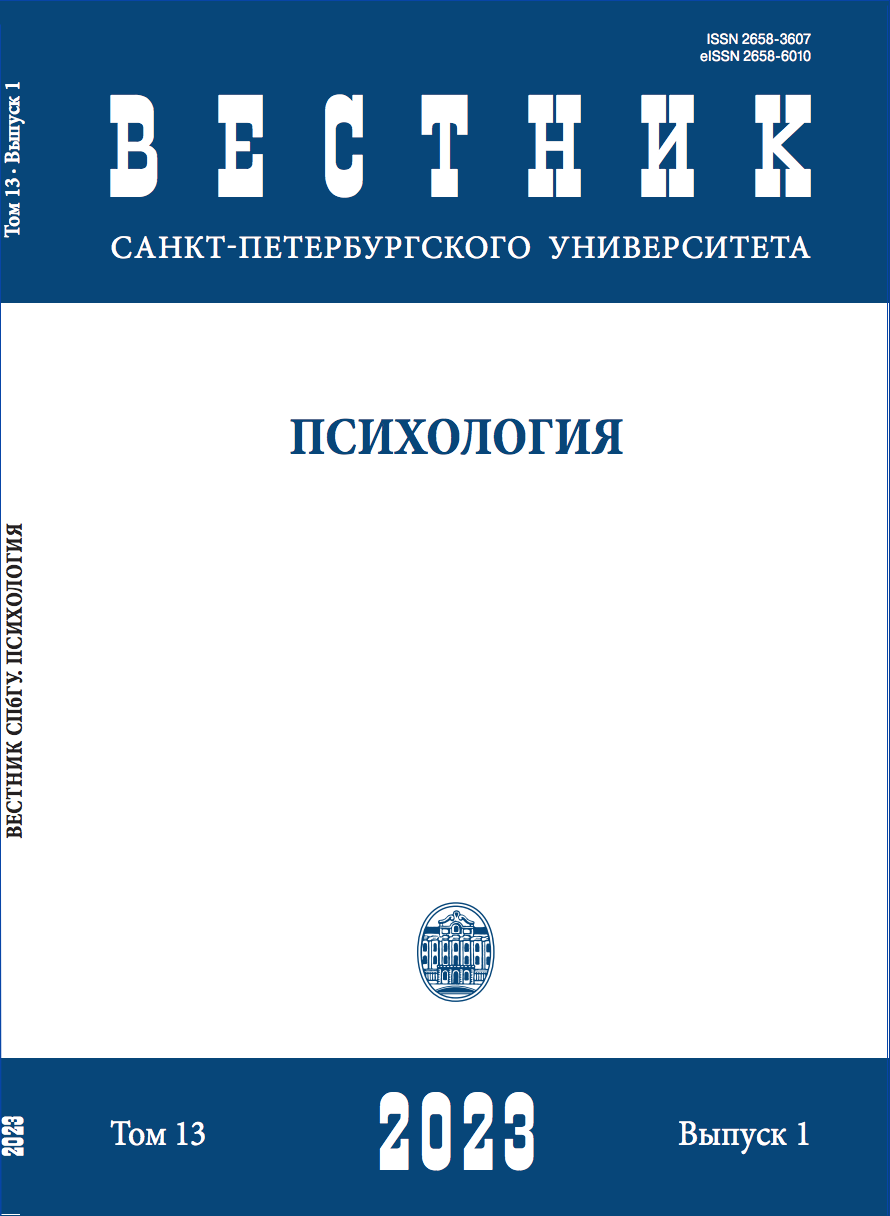The psychology of social cognition: Prospects for development in a changing society
DOI:
https://doi.org/10.21638/spbu16.2023.101Abstract
The results of theoretical and empirical research of the phenomenology and mechanisms of social cognition in the conditions of fluid modernity, social uncertainty and transitivity are summarized in this article. The starting point is the position of the scientific school of G. M. Andreeva, according to which social cognition is considered as an affective and cognitive process of constructing the image of the social world in the individual and public consciousness. A new transdisciplinary concept of social cognition, which integrates the principles of psychology of cultural activity and social constructionism, as well as theories of social representations and collective emotional experiences is presented. The new research direction that greatly expands the subject area of psychological investigation of social cognition — the social psychology of everyday life is verified. It is everyday life that acts as the optics of the analysis of subjective perception and emotional experience of social changes as a situation of uncertainty in various spheres of everyday life of society and culture (from new media to contemporary art). The proposed and implemented aesthetic paradigm in the social psychology of everyday life combines two ways of understanding, explaining and predicting social changes: scientific-conceptual and artistic-figurative (or visual). Thus, the aesthetic paradigm synthesizes the scientific and aesthetic discourses of psychology and art history. In this regard, it is a flexible methodological strategy that opens up the prospects for a multidimensional analysis of modern society and culture that cannot be conceptualized in traditional categories of social cognition (for example, mental models, categorization, causal attribution). On the basis of the aesthetic paradigm of everyday life, a new construct of precarity is introduced for domestic psychology, which means individual and collective emotion experience of total vulnerability, fragility and insecurity of a person in a situation of uncertainty. This construct makes it possible to analyze the affective states that characterize the mass consciousness of modern society. At the same time, specific instruments for studying the emotional experience of social change, including precarity, are qualitative methods for collecting, analyzing and interpreting data, which today unites in a sole methodological approach to the study of social cognition.
Keywords:
social cognition, social change, uncertainty, transitivity, aesthetic paradigm, collective emotional experiences, precariousness
Downloads
References
References
ed_dialogue/@actrav/documents/meetingdocument/wcms_161352.pdf (accessed: 03.01.2022).
Downloads
Published
How to Cite
Issue
Section
License
Articles of "Vestnik of Saint Petersburg University. Psychology" are open access distributed under the terms of the License Agreement with Saint Petersburg State University, which permits to the authors unrestricted distribution and self-archiving free of charge.




